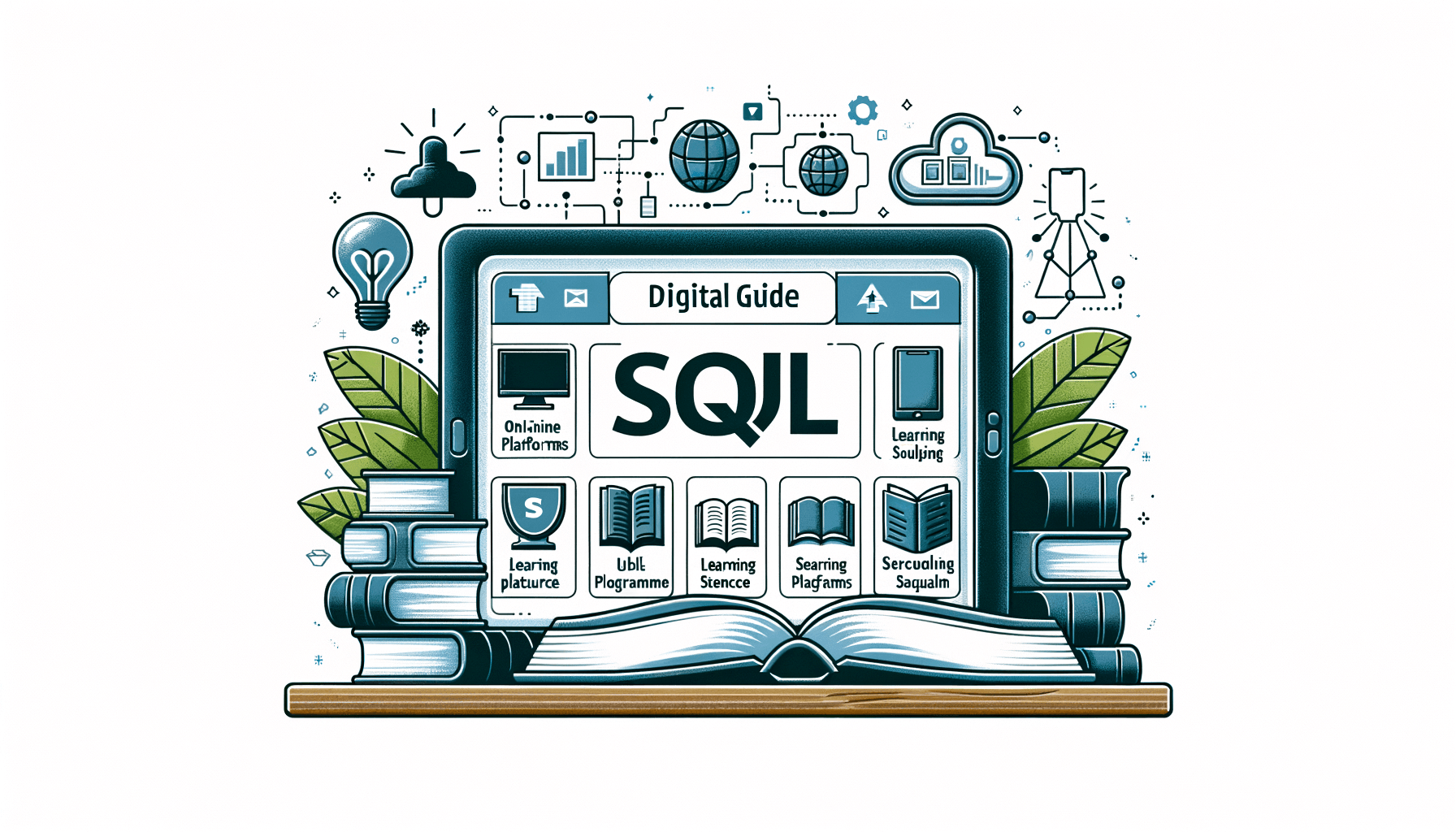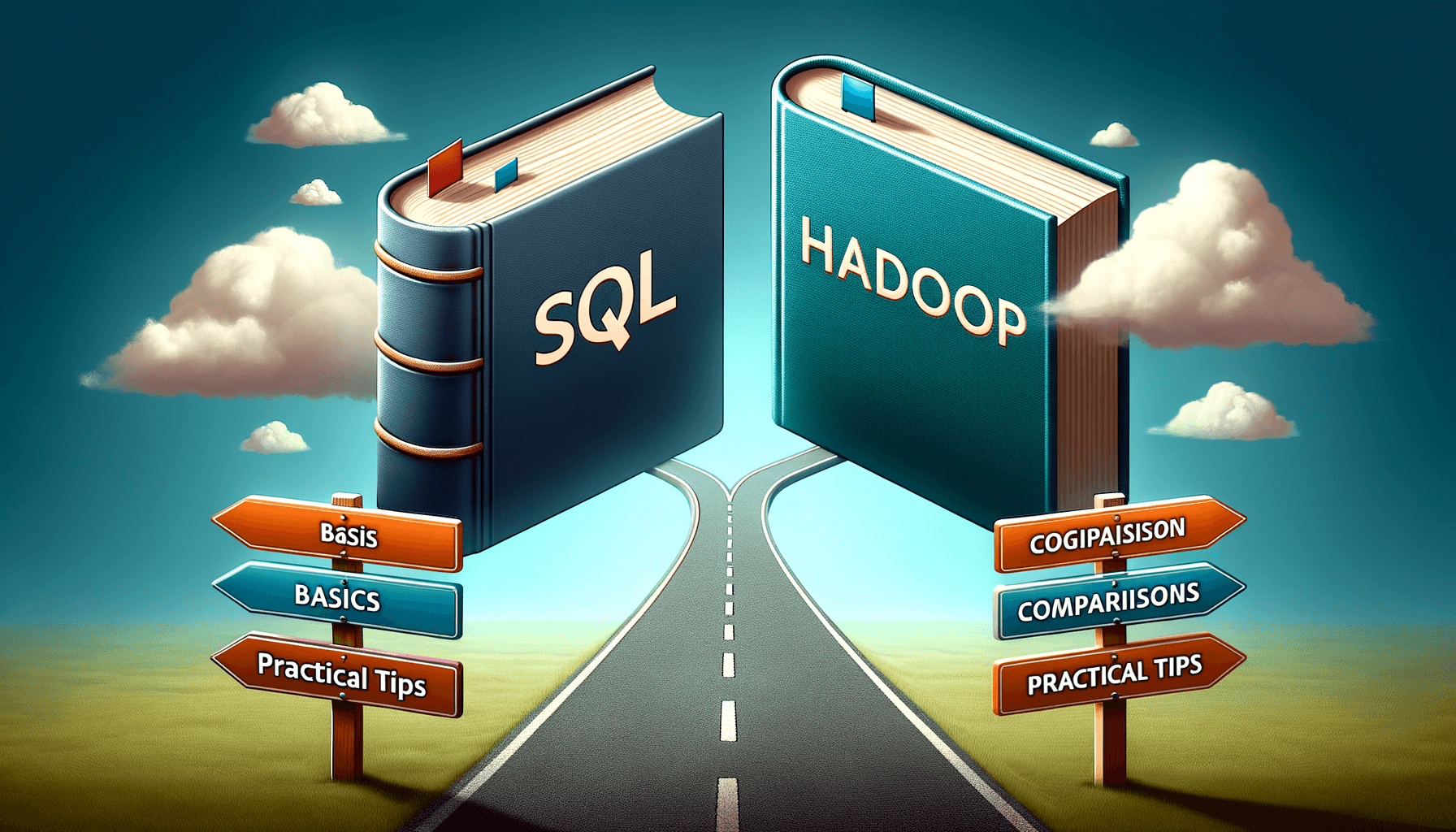A big variety of articles and resources

How much SQL does a product manager need to master?
 Sia Author and Instructor
Learn SQL
Sia Author and Instructor
Learn SQL
13 minute read
Product managers need to make decisions based on data. Knowing SQL can help them get the information they need from databases. This article will explore how much SQL a product manager should know. We'll look at basic and advanced skills, how SQL helps in different parts of the job, and where to learn more.
Key Takeaways
- SQL helps product managers make smart choices based on data.
- Basic SQL skills include simple queries and data retrieval.
- Advanced SQL skills involve complex joins and subqueries.
- SQL is useful for analyzing customer data and market trends.
- Learning SQL can improve how product managers work with other teams.
The Role of SQL in Product Management
Understanding Data-Driven Decision Making
In product management, making decisions based on data is crucial. We need to understand how to collect, analyze, and interpret data to make informed choices. Data-driven decision making helps us identify what works and what doesn't, allowing us to adjust our strategies accordingly.
The Importance of Data Literacy
Being data literate means we can read, work with, and communicate data effectively. This skill is essential for product managers because it enables us to understand the story behind the numbers. With strong data literacy, we can better collaborate with data analysts and engineers.
SQL as a Tool for Product Managers
SQL, or Structured Query Language, is a powerful tool for managing and analyzing data. For product managers, knowing SQL means we can directly access and manipulate data without always relying on others. This independence can speed up our workflow and improve our ability to make quick, data-backed decisions.
Mastering SQL can significantly enhance our ability to lead data-driven projects and communicate insights clearly to our team.
Fundamental SQL Skills for Product Managers
Basic SQL Queries
To start with SQL, we need to understand basic queries. These are the building blocks for any data task. Learning these basics helps us ask the right questions and get the answers we need from the database.
Data Retrieval Techniques
Next, we focus on how to get data from the database. This involves using different commands to pull out the information we need. Knowing these techniques is key to making data-driven decisions.
Introduction to SQL Joins
Finally, we learn about SQL joins. Joins let us combine data from different tables. This is important because it helps us see the full picture. By mastering joins, we can handle more complex data tasks and gain deeper insights.
Gaining practical SQL skills with real-world problems and hands-on projects is essential for success. It requires effort and practice, but the rewards are worth it.
Advanced SQL Techniques for Product Managers
Complex Joins and Subqueries
In product management, we often need to combine data from multiple tables to get a complete picture. Complex joins and subqueries are essential for this. Mastering these techniques allows us to answer more detailed questions about our products and users. For example, we might use a subquery to find all users who made a purchase in the last month and then join this data with user feedback to understand their experience better.
Window Functions
Window functions are powerful tools that let us perform calculations across a set of table rows related to the current row. This is particularly useful for tasks like calculating running totals, ranking items, or finding moving averages. By using window functions, we can gain deeper insights into user behavior over time without needing to write complex queries.
Common Table Expressions (CTEs)
CTEs make our SQL queries easier to read and manage by breaking them into smaller, more understandable parts. They are especially useful for writing recursive queries or when we need to reference the same subquery multiple times. Using CTEs can help us keep our queries organized and improve their performance.
SQL for Market Analysis
Analyzing Customer Data
In product management, understanding our customers is crucial. By using SQL, we can dive deep into customer data to uncover patterns and preferences. This helps us make informed decisions about product features and improvements. For example, we can query our database to find out which features are most popular among different customer segments.
Identifying Market Trends
SQL allows us to track and analyze market trends over time. By examining sales data, user engagement, and other metrics, we can identify emerging trends and adjust our strategies accordingly. This proactive approach ensures that we stay ahead of the competition and meet our customers' evolving needs.
Segmentation and Targeting
With SQL, we can segment our customer base into distinct groups based on various criteria such as demographics, behavior, and purchase history. This segmentation enables us to tailor our marketing efforts and product offerings to specific target audiences, increasing the effectiveness of our campaigns and improving customer satisfaction.
By leveraging SQL for market analysis, we can gain valuable insights that drive our product strategy and help us better serve our customers.
SQL in Product Development
Tracking Feature Usage
Understanding how users interact with different features is crucial for product development. By using SQL, we can track feature usage and identify which features are most popular. This helps us prioritize improvements and allocate resources effectively. SQL queries allow us to pull detailed usage data from our databases, giving us insights into user behavior.
A/B Testing and Experimentation
A/B testing is a common method to test new features or changes. With SQL, we can analyze the results of these tests to determine which version performs better. This involves comparing metrics like click-through rates, conversion rates, and user engagement. SQL makes it easier to segment users and analyze their interactions, ensuring our experiments are data-driven.
User Feedback Analysis
User feedback is invaluable for product development. By storing feedback in a database, we can use SQL to analyze common themes and issues. This helps us understand user needs and pain points, guiding our development efforts. SQL queries can help us categorize feedback and identify trends, making it easier to address user concerns and improve our product.
Leveraging SQL in product development allows us to make informed decisions based on real user data, ensuring our product evolves to meet user needs.
SQL for Performance Metrics
Key Performance Indicators (KPIs)
In product management, tracking Key Performance Indicators (KPIs) is crucial. KPIs help us understand how well our product is performing in the market. By using SQL, we can extract and analyze data to measure these indicators accurately. This allows us to make informed decisions and adjust our strategies as needed.
Measuring User Engagement
User engagement is a vital metric for any product. With SQL, we can query our database to find out how users interact with our product. This includes tracking metrics like daily active users (DAU), session duration, and feature usage. By analyzing this data, we can identify areas where users are highly engaged and areas that may need improvement.
Churn Rate Analysis
Churn rate is the percentage of users who stop using our product over a given period. Using SQL, we can calculate the churn rate by comparing the number of users at the beginning and end of a period. This helps us understand why users are leaving and what we can do to retain them. Reducing churn is essential for the long-term success of our product.
Understanding performance metrics through SQL enables us to make data-driven decisions that enhance our product's success.
Data Visualization with SQL
Creating Dashboards
Creating dashboards is a key skill for product managers. Dashboards help us see data clearly and make better decisions. We can use SQL to pull the right data and show it in a way that's easy to understand. Dashboards can show trends and patterns that might be missed in raw data.
Integrating SQL with BI Tools
Business Intelligence (BI) tools work well with SQL. These tools let us take the data we get from SQL and turn it into charts and graphs. This makes it easier to share insights with our team. Using BI tools with SQL helps us make data-driven decisions quickly.
Visualizing Trends and Patterns
With SQL, we can find trends and patterns in our data. This helps us understand what's happening with our product. For example, we can see if a new feature is being used a lot or if there are any issues. Finding these trends early can help us make changes to improve our product.
Using SQL for data visualization helps us see the bigger picture and make better decisions for our product.
SQL and Cross-Functional Collaboration
In our journey through SQL, we have reached a crucial point where collaboration across different functions becomes essential. Working with data analysts, engineers, and stakeholders is a key aspect of leveraging SQL effectively in a product management role. Understanding how to communicate insights and findings to various team members is vital for successful project outcomes. Collaboration ensures that everyone is on the same page and working towards a common goal. It fosters a culture of shared knowledge and expertise, leading to more informed decision-making processes. By collaborating effectively, we can harness the full potential of SQL in driving product innovation and success.
SQL Best Practices for Product Managers
Writing Efficient Queries
When writing SQL queries, it's important to keep them efficient. This means avoiding unnecessary complexity and ensuring that the queries run quickly. Efficient queries save time and resources, making our work smoother and more effective.
Data Security and Privacy
Data security and privacy are crucial in today's world. We must ensure that sensitive information is protected and that we follow all relevant regulations. This includes using secure connections and encrypting data where necessary.
Maintaining Data Integrity
Maintaining data integrity means ensuring that the data we work with is accurate and consistent. This involves regular checks and validations to prevent errors and inconsistencies. By doing so, we can trust the data we use for decision-making.
At sqlskillz.com, we can find courses that help us gain practical skills in SQL, including real-world problem-solving and expert-led training for career advancement in data management.
Learning Resources for SQL Mastery
Online Courses and Tutorials
For those looking to get started with SQL, there are numerous online courses and tutorials available. Websites like Coursera, Udemy, and Khan Academy offer comprehensive courses that cover everything from basic queries to advanced techniques. These platforms provide a structured learning path that can help you build your skills progressively. Additionally, many of these courses include hands-on projects that allow you to apply what you've learned in real-world scenarios.
Books and Publications
Books are another excellent resource for mastering SQL. Titles like "SQL for Dummies" and "Learning SQL" offer clear explanations and practical examples. These books are great for both beginners and those looking to deepen their understanding of SQL. Reading through these publications can provide a solid foundation and serve as a reference guide as you advance in your SQL journey.
Community and Forums
Engaging with the SQL community can be incredibly beneficial. Online forums like Stack Overflow and Reddit have active communities where you can ask questions, share knowledge, and learn from others' experiences. Participating in these forums can help you solve problems more quickly and gain insights that you might not find in traditional learning resources.
For those aiming to expand their SQL skills further, consider enrolling in a mini course focused on advanced topics like query expansion. These courses are often designed for senior database engineers and cover complex functions such as UNION, MIN, and MAX. They also emphasize scalability, integration, and challenge-based learning, making them ideal for those looking to take their SQL expertise to the next level.
Case Studies of SQL in Product Management
Successful Product Launches
In our journey, we've seen how SQL can be a game-changer in launching new products. By analyzing customer data, we can identify what features users want the most. This helps us prioritize development and ensure a successful launch. Using SQL to sift through user feedback allows us to make data-driven decisions that align with market needs.
Data-Driven Product Improvements
SQL is not just for launching products; it's also crucial for making ongoing improvements. We can track feature usage and identify which parts of our product are underperforming. This data helps us make informed decisions on where to focus our efforts. For example, if a feature is rarely used, we can either improve it or replace it with something more valuable.
Lessons from Industry Leaders
Many top companies use SQL to stay ahead of the competition. They rely on data to guide their product strategies and make informed decisions. By studying these industry leaders, we can learn valuable lessons on how to leverage SQL for our own success. Understanding their approach to data can provide us with insights that we can apply to our own product management practices.
SQL is a powerful tool that can transform how we manage products, from launch to continuous improvement. By learning from real-world examples, we can better understand its potential and apply it effectively in our own work.
Explore real-world examples of how SQL is used in product management in our latest case studies. These stories show the power of SQL in making data-driven decisions. Want to learn more? Visit our website to dive deeper into SQL and see how it can benefit your career.
Conclusion
In summary, a product manager does not need to be an expert in SQL, but having a basic understanding can be very helpful. Knowing how to write simple queries can make it easier to get data quickly and make better decisions. It also helps in communicating more effectively with the technical team. While advanced SQL skills are not necessary, being able to understand and use basic SQL can be a valuable tool in a product manager's toolkit. So, investing some time to learn the basics can pay off in the long run.
Frequently Asked Questions
Why should a product manager learn SQL?
SQL helps product managers make better decisions by understanding data. It allows them to pull and analyze data without always needing a data analyst.
What are the basic SQL skills a product manager needs?
A product manager should know how to write simple queries, retrieve data, and use basic joins. These skills help in getting the data needed for reports and analysis.
How does SQL help in market analysis?
SQL can be used to analyze customer data, find market trends, and segment the audience. This helps in making informed marketing decisions.
Can SQL be used to track feature usage?
Yes, SQL can help track how users interact with different features of a product. This information can be used to improve the product.
What are some advanced SQL techniques useful for product managers?
Advanced techniques include complex joins, subqueries, window functions, and common table expressions (CTEs). These help in performing more detailed analysis.
How can SQL improve cross-functional collaboration?
SQL allows product managers to work closely with data analysts and engineers by speaking the same data language. It also helps in clearly communicating insights to stakeholders.
What are some good resources for learning SQL?
There are many online courses, books, and community forums where one can learn SQL. These resources can help build and improve SQL skills.
How does SQL help in measuring performance metrics?
SQL is useful for tracking key performance indicators (KPIs), user engagement, and churn rates. This helps in understanding how well a product is performing.
Related Articles

Best SQL Learning Resources: Your Ultimate Guide
10 minute read

Do we need SQL knowledge to learn Hadoop?
14 minute read





